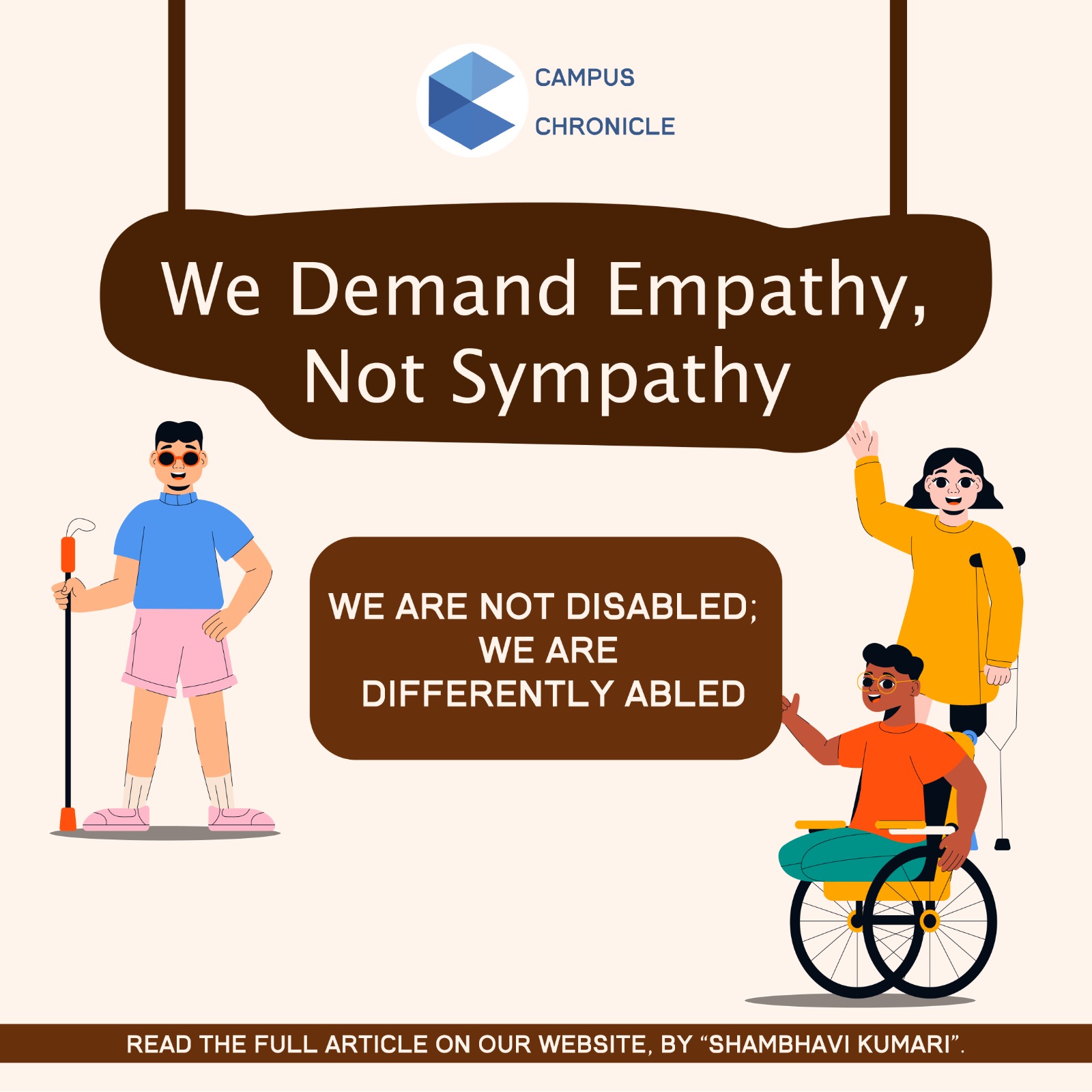Shambhavi Kumari
Today I am going to talk about something extremely important: inclusivity for the specially
abled people in the current world. It’s the need of the hour that we realize the importance of
inclusivity for all and ask ourselves: are we really inclusive of everyone? Well, let me begin
by defining a special ability or disability. It simply means that somebody is not able to carry
out normal functioning because of some impairment, but instead he or she has some special
skills that are extraordinary in nature, which we tend to ignore.
It’s human nature to reject things that are apart from the conventional setup or outside the
normal setup. Now we need to understand that being different doesn’t mean being wrong.
Rather, being different is what creates the difference; it is what makes you stand out.
Disabled people are often put under the ambit of being abnormal, which brings me to the
next point: what is normal? Well, according to me, the definition of normal is very subjective
and depends on us. For example, for some people, when they are sad, they try to talk and
vent out thoughts, and some people prefer isolation. That doesn’t mean either way is wrong
or abnormal, which simply shows that being different is not synonymous with being wrong.
God has not created this difference; he has tried his best to equate everyone in some or
other way. It’s we who have created this difference. Who has given us this right to judge if
the creator hasn’t? We fail to understand that they are humans first, and they also deserve a
private life and the right to make choices without being questioned. They are much more
than what we perceive of them. They have a separate identity apart from being specially
abled, which we fail to recognize because of preconceived notions, but it’s high time we
change this mentality, as the world has an equal division between them and the so-called
normal population. We should give them a proper life where they are not questioned or
stopped for being different.
They don’t demand pity or sympathy; they demand equality, empathy, and proper
representation. It’s something that needs to be addressed. Are we promoting inclusivity?
Well, the answer, sadly, is no; we often reject people because of physical limitations. The
moment we hear someone is disabled, we presume what this person can or cannot do; if he
or she is not exhibiting so-called normalcy in life, we refuse to learn more or don’t even
consider having a conversation with the person. Being specially abled myself, trust me, it
hurts the most. Many times I have faced inappropriate questions that have no relation to me.
It genuinely hurts. It is similar to punishing somebody for a crime not committed by him,
which is not allowed even in law.
Society carries a certificate and tries to validate our choices even when we are not asking for
it. They conveniently tell us what we deserve and consider it their moral duty and
fundamental right. They fail to understand that it’s our canvas and we can paint it in any
color we wish; they are not the ones to dictate. What we demand is support, strength, and
love, which are rare. But instead of all this we get the extreme opposite: aggression, hatred,
pity, sympathy, and unnecessary allegations of being favored by someone in the workspace
just because they know how to love and take care of someone. Being favored is something I
have been accused of multiple times. All our talents are devalued under the label of
favoritism. Is this inclusivity? Think again and ponder over it. Well, no — it’s not inclusivity,
and it’s time we demand change.
We need to create a safe space and promote development for all. Only then will we be able
to realize the true potential and meaning of the word liberty and “equality” as mentioned in
the Constitution; otherwise, without this, we will not be able to realize the true essence of the
Constitution. Because they, too, are proud citizens of the country and deserve all rights as
the so-called normal population.
To conclude, I would like to tell these specially abled people that yes, we are special in our
own way: never let others define you or create your path, and learn to stand up for yourself.
Be you, and design your canvas.



